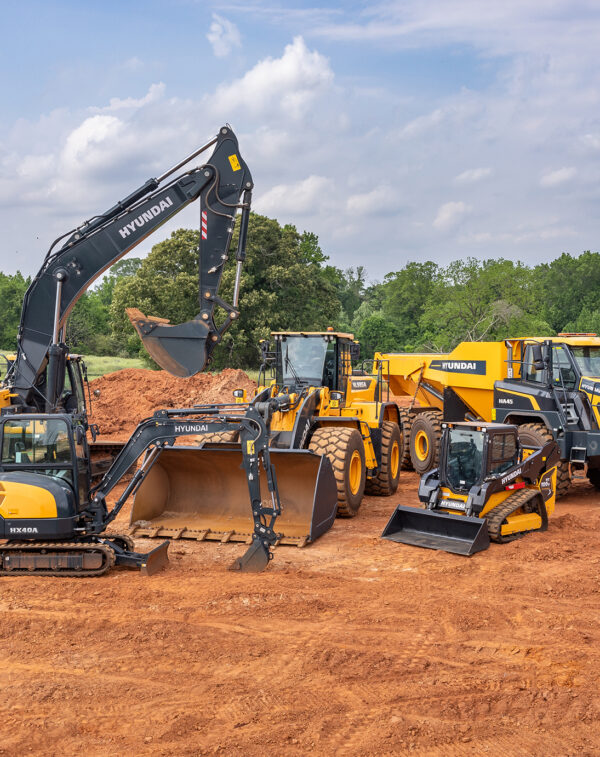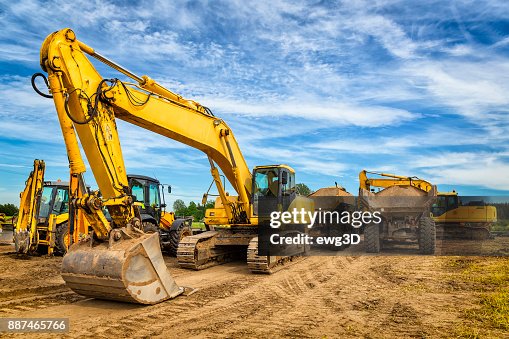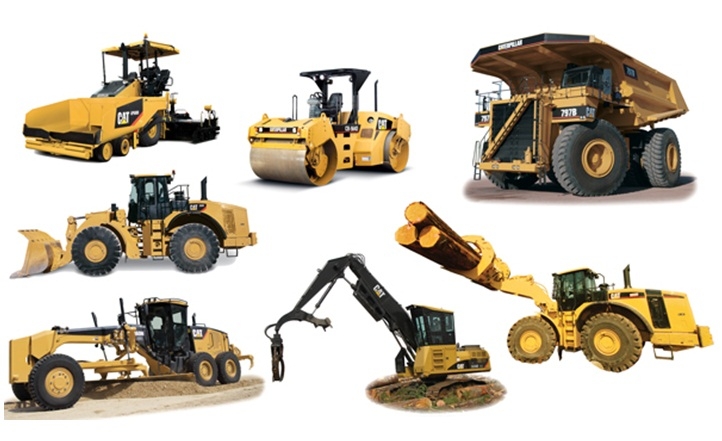Boom Lift Rental in Tuscaloosa AL: Discover Affordable Options for Your Tasks
Boom Lift Rental in Tuscaloosa AL: Discover Affordable Options for Your Tasks
Blog Article
Checking Out the Financial Advantages of Leasing Building And Construction Equipment Compared to Having It Long-Term
The choice between leasing and owning construction devices is crucial for financial administration in the market. Leasing deals instant expense savings and functional adaptability, permitting firms to allot sources extra efficiently. In contrast, possession includes considerable long-term financial dedications, including upkeep and devaluation. As service providers evaluate these choices, the influence on cash money flow, project timelines, and modern technology access becomes progressively substantial. Recognizing these nuances is essential, especially when considering just how they straighten with details task requirements and financial approaches. What aspects should be focused on to make certain optimal decision-making in this complicated landscape?

Price Comparison: Renting Out Vs. Owning
When evaluating the monetary effects of renting out versus having construction equipment, a complete price comparison is essential for making informed decisions. The selection between possessing and leasing can dramatically influence a company's bottom line, and recognizing the linked prices is important.
Leasing construction equipment normally includes lower upfront prices, permitting services to allocate funding to other operational requirements. Rental arrangements commonly consist of adaptable terms, allowing companies to access advanced machinery without lasting dedications. This adaptability can be especially helpful for temporary projects or changing work. Nonetheless, rental costs can build up in time, potentially exceeding the cost of possession if equipment is needed for an extensive period.
Conversely, owning building and construction tools requires a substantial initial financial investment, along with continuous prices such as devaluation, funding, and insurance. While possession can cause lasting cost savings, it likewise binds capital and may not give the exact same degree of adaptability as leasing. Furthermore, having devices necessitates a dedication to its use, which might not constantly line up with job demands.
Inevitably, the choice to rent out or possess must be based on an extensive analysis of details job requirements, economic ability, and lasting tactical objectives.

Upkeep Obligations and costs
The option between renting and possessing building tools not just involves financial considerations but likewise encompasses ongoing maintenance expenses and obligations. Having equipment requires a significant commitment to its maintenance, that includes routine assessments, fixings, and potential upgrades. These duties can promptly accumulate, leading to unexpected prices that can strain a budget.
On the other hand, when renting out tools, maintenance is commonly the duty of the rental business. This setup permits professionals to avoid the financial worry related to damage, as well as the logistical obstacles of scheduling repairs. Rental contracts frequently include stipulations for upkeep, suggesting that service providers can focus on completing projects instead of stressing concerning equipment problem.
Moreover, the diverse series of tools available for rental fee allows firms to pick the most up to date models with advanced technology, which can enhance effectiveness and performance - scissor lift rental in Tuscaloosa Al. By going with rentals, organizations can stay clear of the lasting liability of tools depreciation and the linked upkeep frustrations. Ultimately, evaluating maintenance costs and responsibilities is important for making an educated decision concerning whether to possess or lease building and construction tools, dramatically influencing total project prices and operational effectiveness

Devaluation Effect On Possession

A substantial variable to consider in the decision to have construction devices is the impact of devaluation on overall ownership expenses. Devaluation stands for the decrease in value of the devices in time, affected by variables such as use, damage, and improvements in modern technology. As devices ages, its market price reduces, which can dramatically affect the proprietor's economic position when it comes time to trade the tools or market.
For building firms, this devaluation can translate to significant losses if the devices is not utilized to its greatest potential or if it lapses. Owners should make up depreciation in their monetary forecasts, which can lead to greater overall expenses contrasted to renting out. Furthermore, the tax obligation effects of depreciation can be complicated; while it may supply some tax benefits, these are usually balanced out by the fact of decreased resale value.
Ultimately, the worry of depreciation highlights the significance of recognizing the lasting financial commitment associated with possessing construction devices. Companies need to meticulously review exactly how often they will use the tools and the possible economic influence of devaluation to make an educated decision about ownership versus renting.
Economic Adaptability of Renting Out
Leasing construction devices provides considerable monetary adaptability, allowing business to allocate sources much more effectively. This adaptability is particularly crucial in a sector identified by changing project needs and varying work. By choosing to rent out, companies can prevent the substantial funding outlay needed for purchasing equipment, protecting cash circulation for other functional demands.
Furthermore, renting out tools look at this website makes it possible for business to tailor their tools options to particular job requirements without the lasting dedication connected with ownership. This indicates that organizations can quickly scale their equipment supply up or down based on present and read the full info here awaited project requirements. Consequently, this adaptability lowers the threat of over-investment in equipment that may become underutilized or obsolete with time.
Another monetary advantage of renting is the possibility for tax benefits. Rental payments are typically taken into consideration business expenses, enabling prompt tax obligation deductions, unlike devaluation on owned and operated devices, which is topped a number of years. scissor lift rental in Tuscaloosa Al. This prompt expenditure recognition can further improve a firm's cash money position
Long-Term Task Factors To Consider
When evaluating the lasting demands of a construction company, the decision between having and leasing devices becomes much more complex. For tasks with extended timelines, purchasing tools may appear beneficial due to the potential for lower overall expenses.
The building and construction market is developing quickly, with brand-new tools offering improved effectiveness and safety and security attributes. This versatility is especially valuable for organizations that handle diverse projects calling for various types of equipment.
Additionally, monetary stability plays a critical duty. Possessing equipment frequently entails substantial capital expense and devaluation issues, while renting enables for more predictable budgeting and cash flow. Ultimately, the choice between having and renting out must be straightened with the tactical goals of the building and construction business, taking into account both current and expected job needs.
Conclusion
In verdict, leasing building and construction equipment provides significant financial advantages over lasting ownership. The minimized ahead of time article source expenses, removal of upkeep responsibilities, and avoidance of depreciation add to enhanced capital and financial flexibility. scissor lift rental in Tuscaloosa Al. Moreover, rental payments function as instant tax reductions, further benefiting service providers. Ultimately, the choice to lease rather than very own aligns with the vibrant nature of construction tasks, enabling versatility and accessibility to the most recent tools without the economic problems linked with ownership.
As devices ages, its market worth decreases, which can substantially impact the owner's economic setting when it comes time to sell or trade the tools.
Renting construction equipment provides considerable economic versatility, allowing companies to designate resources more successfully.In addition, renting devices enables business to tailor their equipment options to particular job demands without the long-term commitment connected with possession.In conclusion, renting out construction tools supplies significant financial advantages over long-lasting possession. Ultimately, the decision to rent out rather than very own aligns with the dynamic nature of building and construction projects, enabling for adaptability and accessibility to the newest devices without the economic concerns linked with ownership.
Report this page